By Mateusz N. and Zuzanna H.
Interview
Our interview with Tomasz Tosza - deputy director of the City Road and Bridge Authority in Jaworzno.
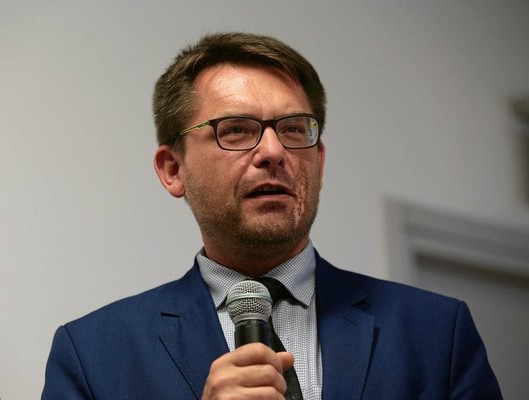
Mateusz: Good morning, today Zuzanna Horwacik and I would like to interview Tomasz Tosza - deputy director of the City Road and Bridge Authority in Jaworzno. We would like to welcome you.
Zuzia: We will ask you a few questions about car parks in our city. Firstly: are the current solutions, i.e. chargers for electric cars, useful in our city, do people use them and are there any other intelligent solutions regarding the parking lots in Jaworzno?
Tomasz: There are not and there will not be such solutions because they have been tried in many places in the world and they simply do not work. Drivers always want to park where it is closest to where they want to go and they are not interested in reserving parking spaces. They usually try to park as close as possible, often breaking the rules, which are also not enforced in Poland. In many countries attempts have been made to solve the problem of lack of parking spaces, and these attempts have ended in great failure. In an American city, there are 11 parking spaces for about one car. Most often, there are no parking spaces in places where drivers want to park anyway. Since this problem has not been solved anywhere in the world, maybe the problem is elsewhere. The problem does not turn out to be a lack of parking spaces - there is a problem of excess cars, and those places where there is no problem with parking are places that have dealt with the excess cars. And as for electric chargers, we have chargers in the underground car park now and that's it. The chargers are used for overnight charging by local residents. We also need to be aware that car electromobility will not be based on public chargers. It is already known how drivers will use the chargers - they will charge their cars overnight in their homes, and during the day they will drive their cars over distances that will be within the range of one charge.
Zuzia: Question: What do you think about introducing an application showing free parking spaces in Jaworzno and are there any chances of introducing it in our city?
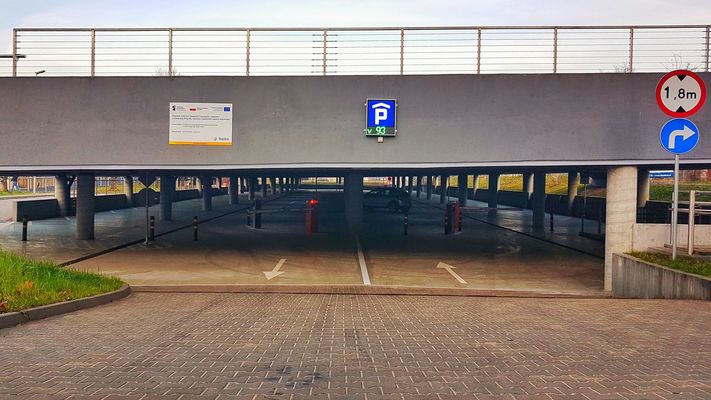
Mateusz: Such an application would show, for example, free parking spaces located in the Municipal Centre of Transport Integration. Residents could use it to see if they can go there or if they need to find a place in another car park.
Tomasz: No, because such solutions do not work. In such cases, you need parking space sensors and occupancy signals, which are expensive. Secondly, a parking space is free until someone parks in it. And if there are a hundred parking spaces in a city, it can happen that space which was empty 10 seconds ago will already be occupied in 11th second. So there is no reason to drive there. These are solutions that simply don't work also because drivers really don't like to walk far to where they want to go.
Zuzia: Are there any plans to introduce new parking solutions?
Tomasz: We don't have a big problem in our city related to a lack of parking spaces or an excess of cars. We do not have any needs related to increasing the availability of parking spaces; on the contrary, we are trying to remove car parks from central parts of the city. Many car parks have been removed in recent years. An example of change in our city can be seen in the underground car park at the MCKIS hall, where there used to be 800 cars parked per day and now there are 120/150 cars per day. It should also be noted that there are still free spaces in this car park and there is no problem parking there - people just use public transport more often.
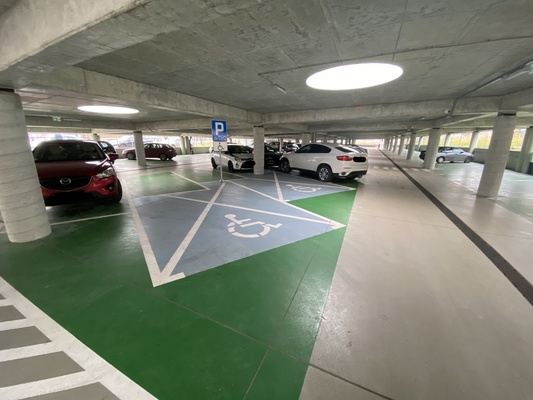
Mateusz: All in all, you could call it a smart solution to "shift people to public transport" and remove the emissions associated with car transport.
Tomasz: Exactly.
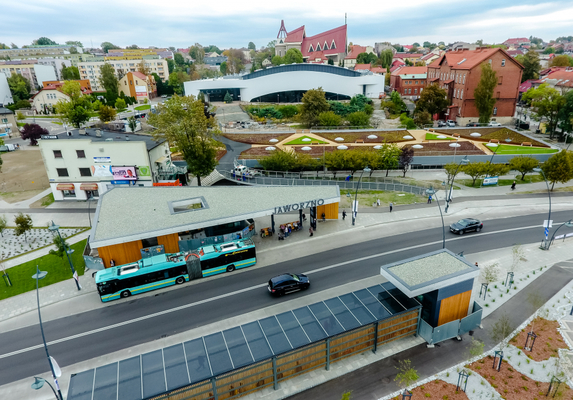
Mateusz: Thank you very much for answering all our questions and giving us your time. Goodbye.
Tomasz: Please, it was my pleasure. Goodbye.
Column about our interview
in city's newspaper.
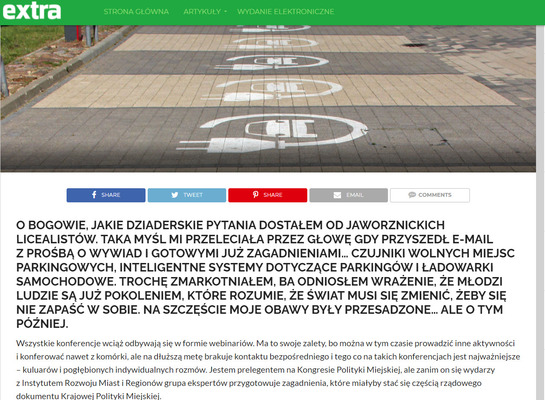
About a week after our meeting with Tomasz Tosza, he published an opinion piece about smart solutions for car parks and our interview. In his column, he talked about the same things as in our meeting. He wrote that lack of parking spots isn't a problem - too many cars are. He said that his colleagues were scared of the idea to solve the problem by implementing a document that will be needed to register a new car. The document would say that the person has a place to keep a car in or is renting it. He wrote about electric cars and that public chargers won't be enough in the future. He also said that first, he was sceptical about our questions and their topic but then he changed his mind. He wrote that he could see that we understood what he was talking about from our eyes sticking out from our masks. In the end, he mentioned that his panel approached the topic negatively but ministerial officials who probably also see the problem of excess were enthusiastic about the idea.
You can read the column here:
http://extra.info.pl/index.php/2021/05/15/problem-nadmiaru-felieton/
Conclusion
In conclusion: our interview resulted in discussion among city and ministerial officials. Our ideas weren't the proper solution for the lack of public parking spaces problem. We have learned that many other solutions are currently implemented in our city - such as shifting people to public transport (which is run in 60% by electric busses). Other ones are still discussed. We hope that thanks to our interview, more and more cities will implement smart parking solutions that work in our city and there won't be any problem with finding free parking space in the city of 2040.
~Zuzanna and Mateusz
QUIZ
Click the image or the link below:
https://wordwall.net/play/16664/268/156